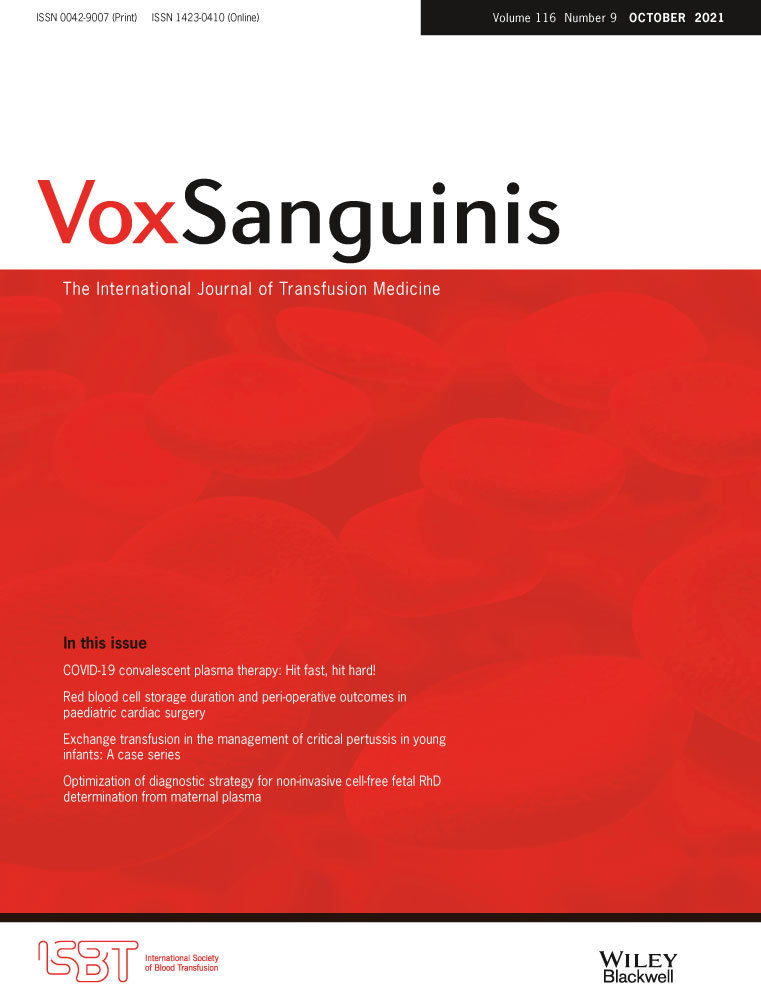Red blood cell storage duration and peri-operative outcomes in paediatric cardiac surgery
Abstract
Background
Prior research on red blood cell (RBC) storage duration and clinical outcomes in paediatric cardiac surgery has shown conflicting results. The purpose of this study was to evaluate whether blood stored for a longer duration is harmful in these patients.
Methods
We performed a retrospective cohort study of paediatric patients undergoing cardiac surgery at our institution between January 2011 and June 2015. Patients were stratified based on whether they were transfused RBCs stored for ≤15 days (fresher blood) or >15 days (older blood). The primary outcome was composite morbidity, with prolonged length of stay (LOS) as a secondary outcome. Subgroup analyses were performed after stratification by RBC transfusion volume (≤2 vs. >2 RBC units). Multivariable logistic regression models were used to assess the impact of RBC storage duration on composite morbidity and prolonged LOS.
Results
Of 461 patients, 122 (26·5%) received fresher blood and 339 (73·5%) received older blood. The overall rate of composite morbidity was 18·0% (n = 22) for patients receiving fresher blood and 13·6% (n = 46) for patients receiving older blood (P = 0·24). In the risk-adjusted model, patients receiving older blood did not exhibit an increased risk of composite morbidity (OR: 0·74, 95% CI: 0·37–1·47, P = 0·40) or prolonged LOS (OR: 0·72, 95% CI: 0·38–1·35, P = 0·30) compared to patients receiving fresher blood. Similar results were seen after stratification by RBC transfusion volume.
Conclusions
Transfusing RBCs stored for a longer duration was not associated with an increased risk of morbidity or prolonged LOS in paediatric cardiac surgery patients.
Conflict of interests
S.M.F. participates on scientific advisory boards for Haemonetics, Medtronic and Baxter. All other authors declare no conflicts of interest.




